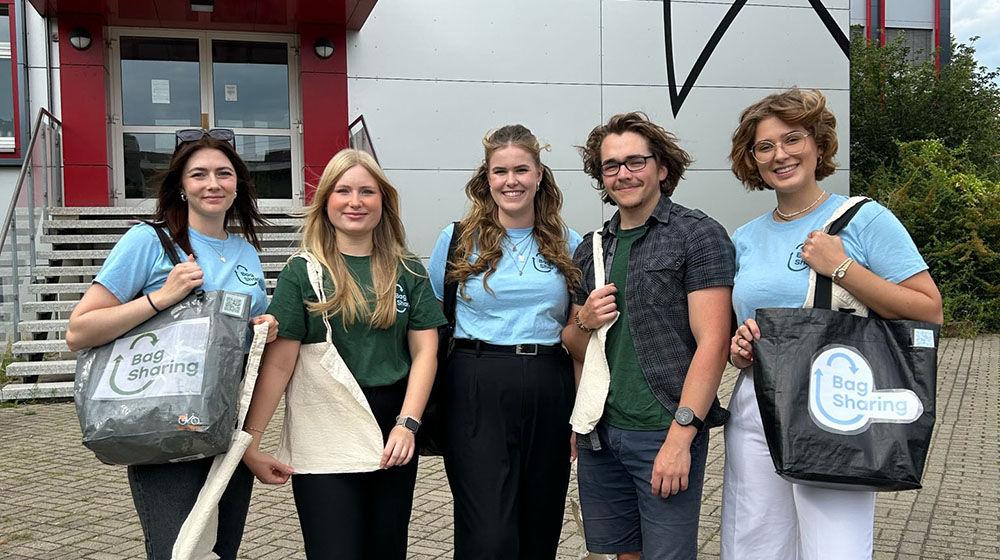
How BagSharing makes shopping more sustainable
For many people, canvas bags are an environmentally friendly way to store their shopping. However, the bags are not quite as sustainable as they promise and can even damage the environment. Students at Otto von Guericke University have found a solution to this - the BagSharing project.
“At BagSharing, we are working on a digital reusable system for shopping bags that is simple, digital and, above all, sustainable. We want to counteract the environmental pollution caused by conventional shopping bags, which is mainly driven by spontaneously purchased bags,” explains Annelie Schröder. She studies Cultural Engineering at the University of Magdeburg and is involved in founding the company. The student also takes a critical view of the use of canvas bags as an alternative.
Why the sustainability of canvas bags is questionable
“Many people know that disposable paper or plastic bags are not environmentally friendly. But even canvas bags, which are considered more sustainable, are problematic due to their high water and energy consumption in production. Depending on how it is produced, a fabric bag has to be used up to 130 times to have a better environmental footprint than a plastic bag.” This is where BagSharing as a reusable system comes in.
The idea behind it is simple: users can find BagSharing bags made from recycled plastic directly in participating grocery and retail stores and can borrow them via an app and return them across all stores. Use is free of charge. Fees are only charged if the loan period is extended or the return is missed.
How the project came to life
The project was originally launched by a team from the Enactus association at the University of Jena. Enactus is an international student association that is active at many universities and promotes social, ecological and economic projects. The aim is to develop sustainable solutions through entrepreneurial action. A conventional deposit system with donated canvas bags was initially developed in Jena and later extended to the Magdeburg site.
“Shortly after the start of implementation in Magdeburg, however, we realized that the classic deposit system wasn't working and we had to rethink the concept,” reports Annelie Schröder.
Instead, the team of students in Magdeburg is now working with a digital solution via an app that is currently under development. The team is working closely with the Enactus association and has received funding from the EXIST Women grant from the Federal Ministry for Economic Affairs and Climate Protection, among others.
The aim is to launch the project in the first stores by 2025. Annelie Schröder is optimistic about this: “We have already been able to win three partner stores for our pilot phase, who want to test the system with us in Magdeburg this year.”
